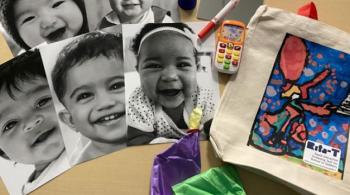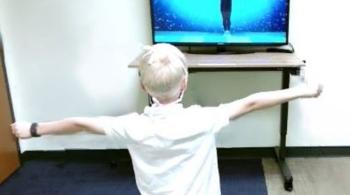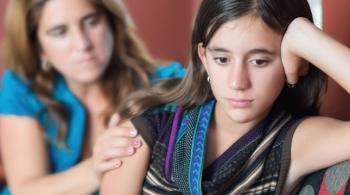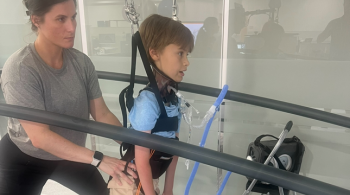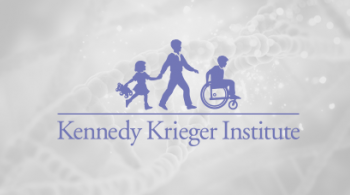By Erin F. Jones, project manager for the Intellectual and Developmental Disabilities Research Center at Kennedy Krieger Institute and The Johns Hopkins University, and Amelia Reighard, LMSW, senior research assistant at the Institute for Human Development at University of Missouri–Kansas City
Throughout the past year, the Intellectual and Developmental Disabilities Research Center (IDDRC) at Kennedy Krieger Institute and The Johns Hopkins University has been a collaborative site with Washington University in St. Louis, Missouri, and the University of Missouri–Kansas City (UMKC), as part of the National Institutes of Health’s RADx® Underserved Populations (RADx-UP) project.
This project sought to identify factors that impact how comfortable parents and guardians of children with intellectual and developmental disabilities (IDD) were with in-person learning during the COVID-19 pandemic. The research team led online focus groups in which they employed a technique called fuzzy cognitive mapping (FCM), where parents and guardians noted their perceived barriers to and facilitators for in-person learning as related to their child, then connected and rated the relationships between those barriers and facilitators to create a “map.” Investigators at UMKC have developed a factor-based analytic technique to analyze the FCM maps.
The FCM analysis included 35 completed maps by parents and guardians (60% white; 23% Black/African American) from suburban (43%), urban (29%) and rural (8%) areas of Missouri, Maryland and Washington, D.C. Among the completed maps, 12 different disability types were represented.
Eleven facilitators for and 10 barriers to in-person learning were identified by parents and guardians throughout the focus groups. Of those, the analysis conducted by the UMKC team identified that masks and personal protective equipment (PPE) (e.g., policies and access to masks/PPE) and cleaning and sanitation (e.g., disinfecting surfaces and hand-washing) have the most impact on facilitating in-person learning, while communication problems (e.g., poor contact tracing or communication with school), learning challenges (e.g., missing learning time if sick or disruptions to support services/learning environment), and unvaccinated staff/students (e.g., concerns about staff/students not receiving or hesitant to receive a vaccine) were the biggest barriers to in-person learning.
The results of this project and the FCM analysis can assist school administrators, states, public health officials and other stakeholders in fine-tuning their COVID-19 response and policies to increase comfort with in-person learning while ensuring the health, safety and academic success of children with IDD.


